Life After Winning the NYC Housing Lottery
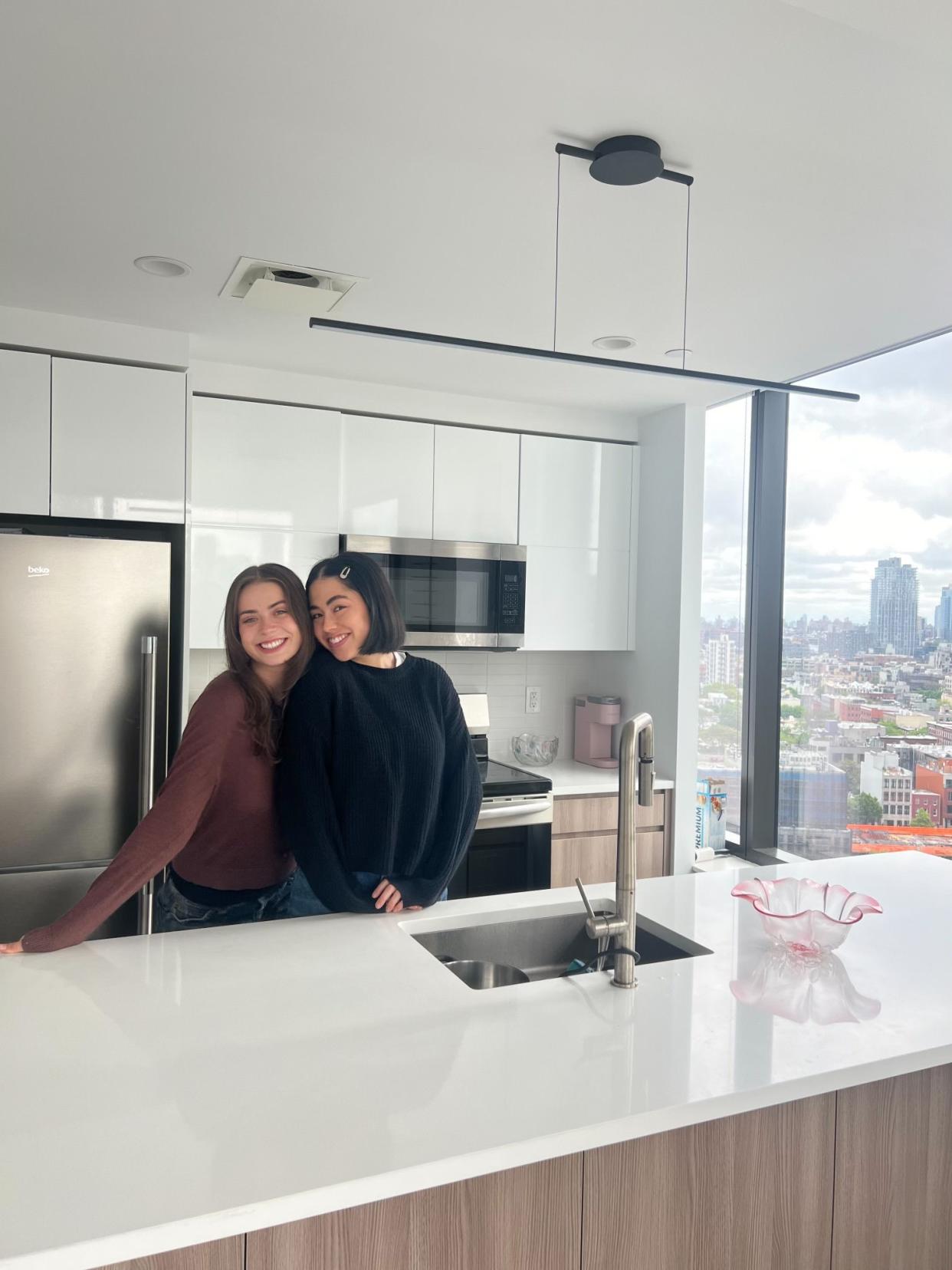
Photo: Courtesy of Emiko Powers
For New York City residents, rewatches of classics set in the Big Apple like Friends and Sex and the City are often accompanied by a pointless yet nagging undercurrent of irritation: How in the world did they afford these egregiously fabulous apartments? Yes, we can separate the beautiful fiction of set design from hard reality, but nevertheless it’s eternally on our minds, given 69% of New Yorkers are renters forced to renegotiate or reconsider our living arrangements just about every year. As Carrie Bradshaw herself mused over two decades ago (in what we now reflect on as simpler times), “In New York, they say, you’re always looking for a job, a boyfriend, or an apartment,” and while some dedicated networking might be your best bet for each of the two formers, there is in fact a system aimed at addressing the free-for-all that comes with securing reasonably priced—for New York—housing. Though it’s not a sure thing by any means: It’s a lottery.
According to NYC’s Housing Preservation & Development Department (HPD), the New York City housing lottery largely took shape under the guidance of Mayor Ed Koch, who served from 1978 to 1989. Aileen Reynolds, HPD’s Assistant Commissioner of Housing Opportunity, tells AD what those acquainted with the city’s real estate market already know well: New York has enormous demand for affordable housing, and an extremely low vacancy rate—“around 1%,” Aileen says. “The need for affordable housing—and not only affordable housing, but safe, clean, secure, affordable housing—is really critical, and unfortunately we don’t have enough of it to make sure every single person has it at this moment.”
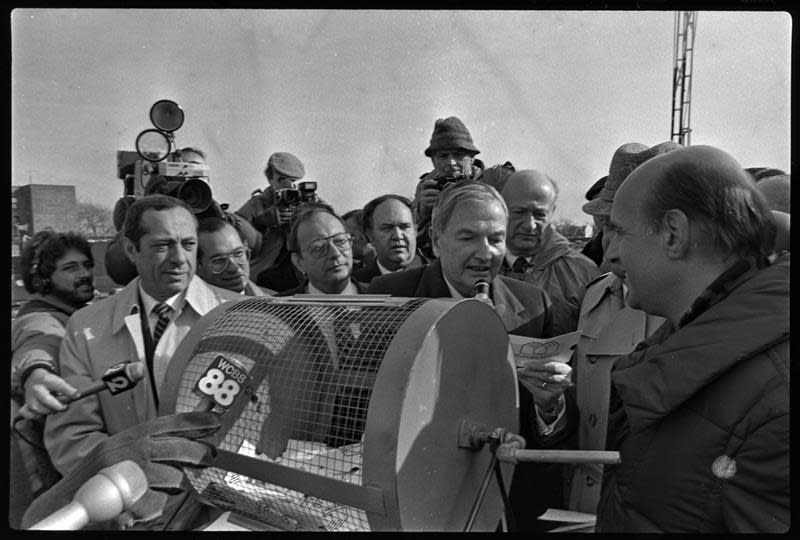
Hence the lottery: An admittedly imperfect solution to the colossal housing problem that, Aileen says, seeks to be as equitable as possible in deciding how the coveted few units—nearly all of which are rent stabilized—are doled out. All the spaces are income-restricted, and a tiered system is set up to make certain that those applying are being matched to residences the program deems equivalent for their earnings. From 2014 through 2021, HPD reports that more than 29,000 New Yorkers moved into homes via the lotteries for affordable housing.
The housing lottery, like the city’s ongoing housing crisis, is really nothing novel, though it’s been updated with the times to improve accessibility, which has led to more and more applicants over the years. “The original housing lottery was essentially an advertisement being placed in a newspaper instructing applicants to send an application in by mail,” Aileen says. “On the day of the lottery, all of those applications would be thrown in a big black garbage bag and shaken up and, individually, an envelope would be taken out and written down on a log…. We’ve come a long way since then.”
Paper applications were offered later. Currently, the most widely opted for housing lotto submission method is via the online platform Housing Connect, which debuted in 2013 (marking a big upgrade from its garbage bag days). As with any other lottery, entering one’s name feels like kind of a moon shot. But unlike the Powerball, the average New Yorker might actually come upon folks who’ve hit the jackpot just by asking around within their network. 26-year-old Alex Carpio, a software development manager and travel agent, secured a one-bedroom apartment in Long Island City through the program and moved in in April 2023. His friend Josh Ayala, an art director and TikTok creator, had also figured he might as well give it a go. Josh, also 26, found himself the lucky winner of a Greenpoint, Brooklyn studio and moved in June 2023.

“This varies from person to person [but] I make a joke that everyone me and Josh know tends to win the housing lottery,” Alex says, adding that another friend was recently selected for a unit through the program.
Though both of the friends’ experiences with the NYC housing lottery ended in success, they emphasize that the process can stretch on for quite a while. Josh’s process took 10 or 11 months, from initial application to the time he heard back from the building he’d applied for. Alex first applied in early 2022, over a full year before he finally moved in. Ultimately, the system is less suited for those in a crunch as the final weeks run down on their lease and more for apartment hunters with a bit of flexibility. “It’s pure luck,” Alex acknowledges. “You’re not going to know if they’ll reach out to you. And also timing wise, they’re very strict on it; When they contact you, they’ll typically give you a timeframe like: ‘Hey, we have a month or so that you can move in’—regardless of whether or not you’re in the middle of a lease.” Alex was, and he paid thousands to break it because he felt the space and its price made it worth his while.
The nebulous waiting period leading to a potentially rushed selection and move-in are part of the deal. “We empathize that it’s not the best system to be able to plan for,” Aileen admits. “Unfortunately, affordable housing is such an important but really limited resource in this city that the lottery is the fairest way we think [there] is to distribute this public resource to everyone. With that comes the expectation that applicants are going to be able to drop everything and move forward with their housing application if they’re able to.”
In the spring of this year, Emiko Powers, a 24-year-old executive assistant, did just that. She and her roommate said goodbye to their security deposit in order to leave their Williamsburg, Brooklyn, apartment behind for the Greenpoint two-bedroom of their dreams, secured through the housing lottery. Looking back, Emiko feels the decision was “not so bad in the long run, [because they’re] saving so much money with the cheaper rent at this new place.” The two split $3,000 rent at their previous residence and now pay $2,200 for their spot in a luxury high-rise chock full of amenities, including a sauna, a pool, and a gym.
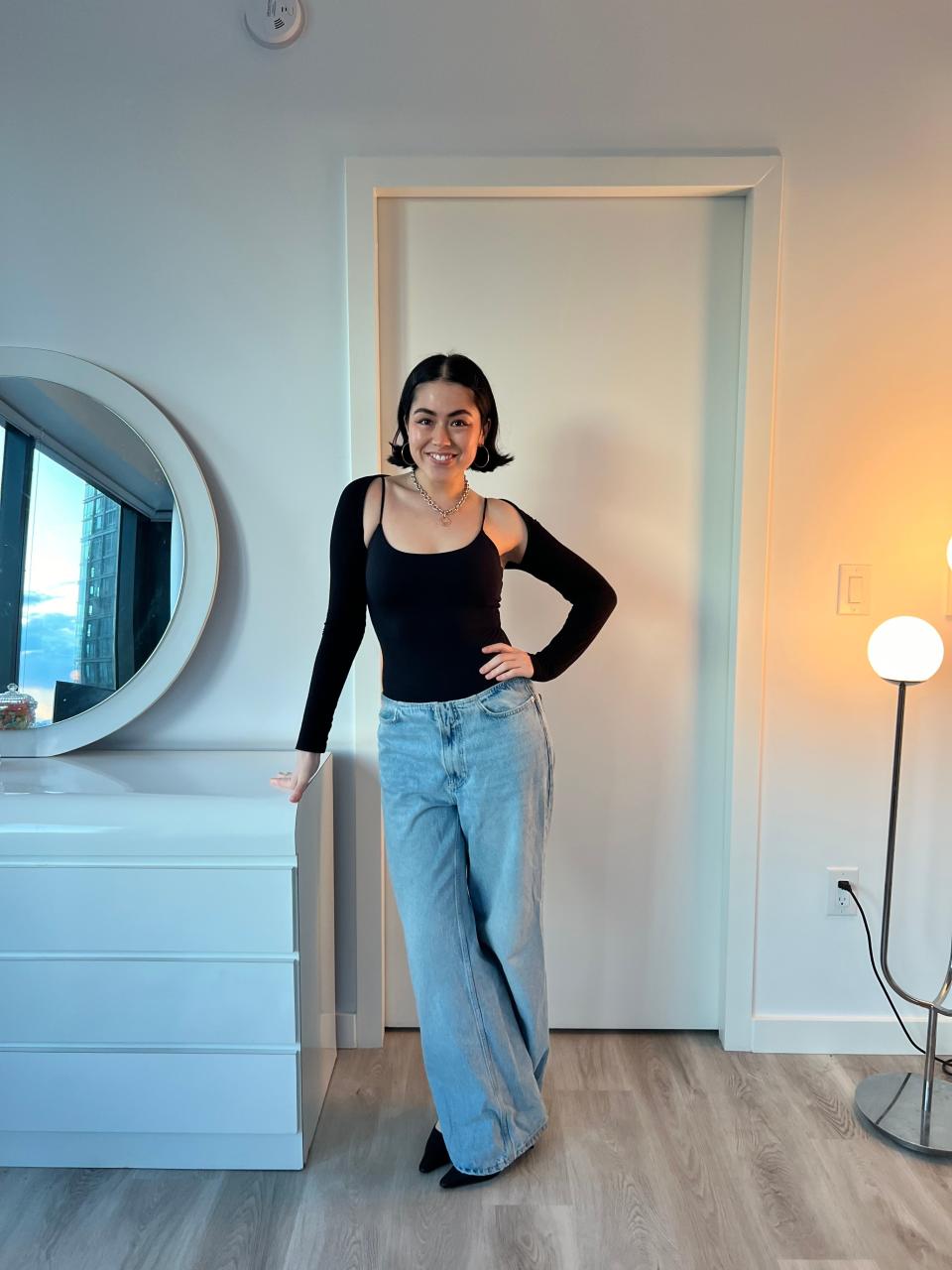
“It has completely changed my life,” Emiko says. “I was really, really struggling in New York, and my mom kept saying, ‘You just need to hang on, if one thing can change, that could change your entire life.’ I did not think that the lottery was even in the realm of what could happen. But [now] I have space, I’m not living on top of someone else, and I feel safe in my building, I can get a good night’s sleep…. With this building, there’s a doorman, I feel like I’m in a safer neighborhood, I don’t hear people walking above me or below me or next to me. Not to mention the money that I’m saving. I knew in the back of my head how important your living space is, but this has just really shown me that your living space and situation can truly affect your day-to-day life.”
Brooke Ashton Lackey, a 28-year-old customer success coordinator who first heard about the NYC housing lottery after having lost her job in the pandemic, echoes Emiko’s thoughts. The Greenpoint one-bedroom she landed through the program has made “a world of difference” in her life. After moving into her new place in January 2023, Brooke woke up to an apartment awash in sunlight, realizing only then how dim her previous accommodations actually were.
“Even having natural light, that affects your mood,” she says. “And having an elevator, in-unit laundry—that sounds so dumb, but [it’s] all the things that people everywhere else in the country see as so normal! I’m so much more at peace [now]. Having a safe space, I feel like I’ve been better at work, and I have much more capacity for other things in life. I’m from the South originally, so I’m not a winter girl. But this year, I liked it. It sucks that this process even has to exist, but to be honest, it has been the biggest blessing.”
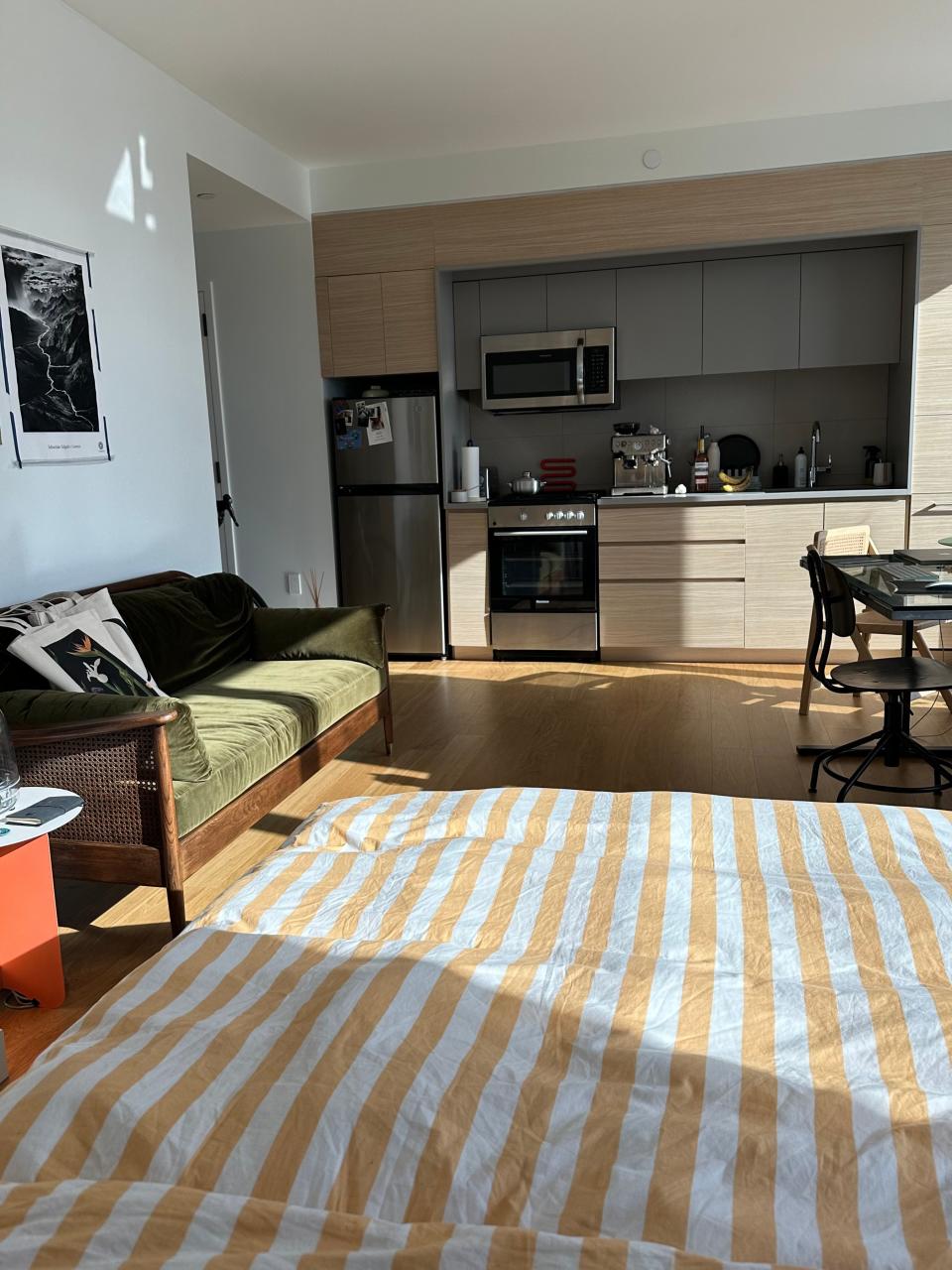
Josh, too, rejoices at the sight of a window that doesn’t just open to a wall. “Just to have those south-facing windows and have light come in all the time, all year, it does something for me personally,” he says. “Even if I wasn’t going to be in a housing lottery apartment, that’s something that I was looking for. I’m also closer to my job, so that’s made traveling and commuting easier. In general, I’m closer to where a lot of my friends are already living or where we typically hang out in Brooklyn, my own city. So in all those different ways, it’s improved my living.”
Having heard about the NYC housing lottery through word of mouth, Brooke felt it only natural to spread the gospel and share her experience with the program on social media. She’s been met with plenty of positive responses and questions about the process, but also some mixed feelings about whether or not the program prioritizes native New Yorkers over so-called “transplants” who move to the city. “I can only speak to my own experience,” she says. “There’s a lot of feelings behind the fact that I am a white girl and I’m transparent about not being born in New York, but I think everyone should apply. I genuinely just wanted to help people who have thought about doing it.”
While most discussing their experiences with the program online are young professionals, the system is meant to serve all ages and all household sizes. “I was helping my grandparents apply to some yesterday,” Alex notes. “I think it’s mostly targeted to [young people] because everything is online, but for older people they even have things like senior-specific housing, only available for people over 62. Some older people might just not be aware [of the opportunity].” The program still takes applications by mail, but the overwhelming majority are submitted through the online platform.
As Aileen explains, the housing lottery applicants who are residents of the city get processed before folks who aren’t, though their working definition of a “resident” is that you live here when you’re applying, “so we’re not differentiating between someone who moved here a year ago to someone who’s lived there their whole life,” she says. “We do have a preference for our local residents, especially since a lot of our housing is built and created through public benefits. We want to make sure that our residents are getting first access to that, but anyone can apply. We have applicants out of state or elsewhere in New York State apply. They are just at a disadvantage when they do apply.”
An HPD report from 2022, analyzing data from between July 2020 and December 2021, breaks down the applicants and signed leases through the NYC housing lottery by demographic information. Most applicants and signed leases are single-person households, with both applications and signed leases tapering off as household size increases to three-, four-, and five-person households. Applications for those in NYC categorized as extremely low income are upwards of 237,000, while the largest group of applications (approximately 327,000) are from households considered very low income. The majority of selected applications were from those categorized as low income or below. A reported 74 selected applications were from middle-income applicants, while none are listed as being above middle income. Black, Hispanic, and Latino applicants represent the largest groups of applicants, as well as selected applications, with 355 leases signed by applicants identifying as Black, 341 identifying as Hispanic or Latino, 106 identifying as Asian, 154 as white, and 167 listed as unknown.
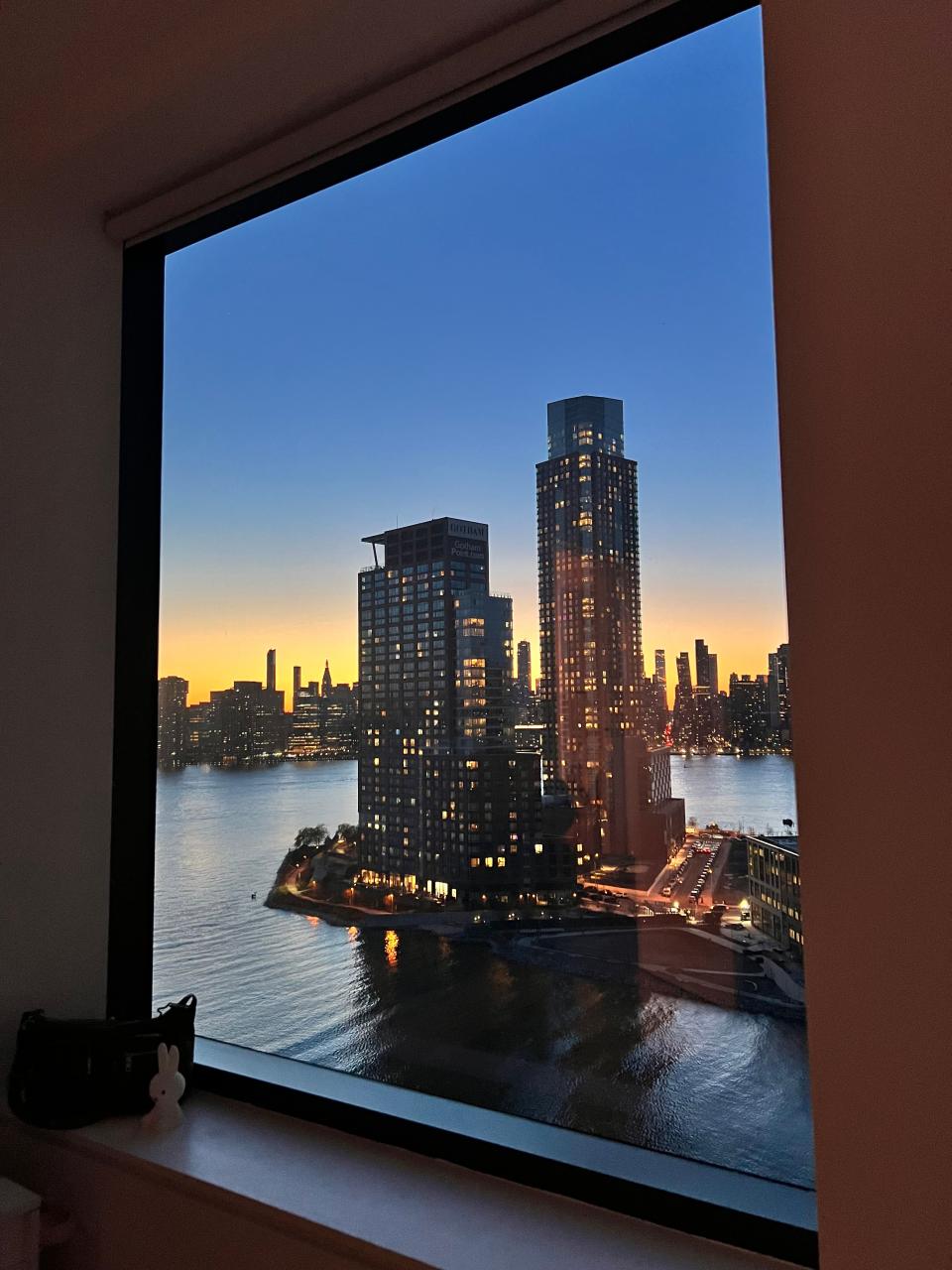
The lucky lottery winners AD spoke to largely had good things to say about their experiences. Their warnings for those entering into the program center around having patience with the process and submitting documents quickly. Most stressed that the best part of the whole thing was the breathing room that relatively affordable, rent-stabilized housing grants you in a tumultuous market like NYC.
“It’ll only go up by a [stabilized] percentage,” Brooke says of her rent. “So apparently I have this apartment forever.” Emiko notes that she and her roommate can kick back in their new space for a few decades, too, if they so choose: “The [program representatives] said someone would check back in 30 years and look at our income.” She and her roommate felt compelled to gift a sort of reverse housewarming present to the rep who helped them through the process, after all was said and done. “We sent her cookies,” Emiko says. “Because we were so grateful.”
Originally Appeared on Architectural Digest
More Great Stories From Clever
This 580-Square-Foot Stockholm Apartment Is a Lesson in Patience—and Saved Searches
Every Square Inch Comes Alive in This 646-Square-Foot Apartment
32 Best Housewarming Gifts Guaranteed to Get You Welcomed Back
Without the Need For Storage, This 500-Square-Foot Manhattan Apartment Shines
Where to Buy Cool Artwork Online: 49 Best Stores for Prints, Paintings, and More
Entering This 700-Square-Foot Chicago Home Feels Like a Family Reunion
Browse the AD PRO Directory to find an AD-approved design expert for your next project.
Not a subscriber? Join AD for print and digital access now.

